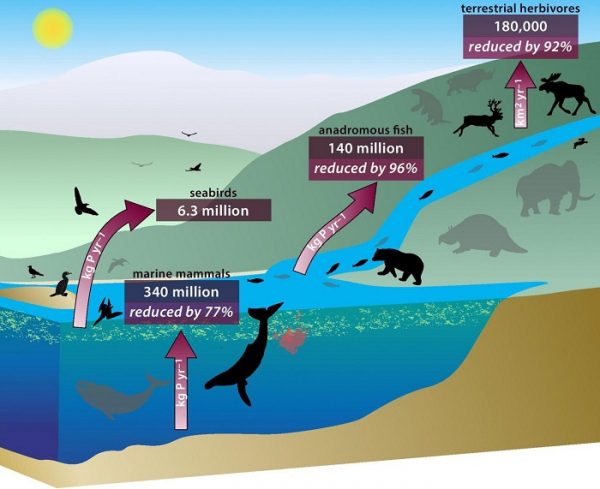 Animals' poop plays a key role in keeping the planet fertile. However, when large animals go extinct the natural cycling of nutrients from deep ocean waters to high mountainous areas is significantly reduced, researchers revealed in a new study.
Animals' poop plays a key role in keeping the planet fertile. However, when large animals go extinct the natural cycling of nutrients from deep ocean waters to high mountainous areas is significantly reduced, researchers revealed in a new study.
“This once was a world that had ten times more whales; twenty times more anadromous fish, like salmon; double the number of seabirds; and ten times more large herbivores–giant sloths and mastodons and mammoths,” Joe Roman, a biologist at the University of Vermont (UVW) and co-author of the recent study, said in a news release. “This broken global cycle may weaken ecosystem health, fisheries, and agriculture.”
The ability of animals to readily transport nutrients over a wide area has significantly decreased since the mass extinction following the end of the last ice age, according to researchers from UVM. This proves that animals act as major “distribution pumps” that transport large amounts of nutrients to areas that would otherwise be less productive, including surface waters and remote inland areas.
Basically, the more animals eat, the more they poop. When animals eat a lot of plant matter, they release nutrients from vegetation through processes of digestion. Then they transport these nutrients from feeding areas, or nutrient-rich “hot spots,” to more remote areas. The valuable nutrients are introduced to scarce areas when animals excrete poop and urine, or when their bodies decompose after death, the release explained.
Source: Loss Of Animals' Poop Disrupts Nutrient Cycles, New Study Shows


